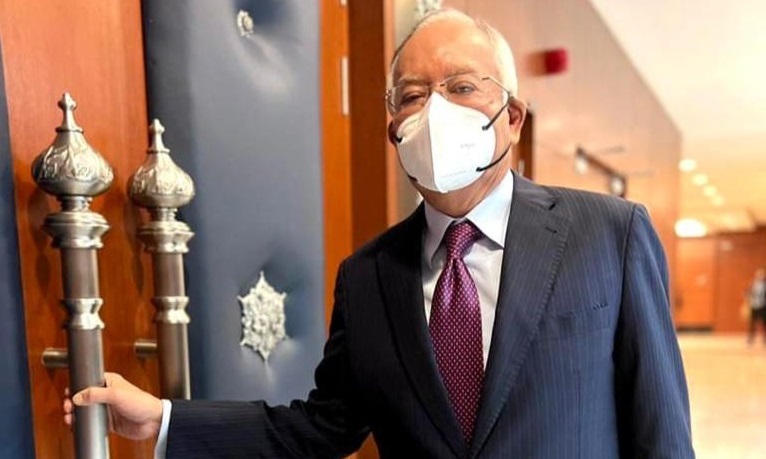
KUALA LUMPUR, April 18 – The Center to Combat Corruption and Cronyism (C4 Center) today said the Malaysian Anti-Corruption Commission (MACC) has overstepped its boundary by deciding that Justice Nazlan Ghazali had violated the Judges’ Code of Ethics when he presided over the controversial SRC International case.
During a Dewan Rakyat sitting on 6 April 2023, Minister in the Prime Minister’s Department (Law and Institutional Reforms) Azalina Othman had revealed that MACC’s investigations into Nazlan had concluded that the judge, who had handed former Prime Minister Najib Razak a 12-year prison sentence, was involved in conflict of interest.
In a statement here today, the C4 Center said it strongly objected to “the MACC’s overreach”.
“The MACC’s current jurisdiction and powers are afforded to them through the MACC Act – there exists no stipulations in the Act that would allow them to overstep into deciding whether or not a judge has violated the Judges’ Code of Ethics, an issue that remains within the judiciary’s purview. As an Executive body under the supervision of the Prime Minister’s Department, this action sets off alarm bells of Executive interference into the Judiciary.”
It also said that the Bar Council and prominent lawyers have pointed out that this is an attempt by the MACC to intimidate the Judiciary.
“If the MACC continues to stand by these findings and not retract them or issue an official rectification, this would set a dangerous precedent in allowing the Executive to undermine the Judiciary.
“In positioning themselves as being able to decide on matters of Judges’ ethical conduct in a public setting, the MACC could inadvertently erode public trust in the judicial system. This is especially dangerous considering that corrupt politicians by-and-large have been able to escape legal scrutiny owing to the gaps in existing institutions – throwing doubt on such a major decision would hamper subsequent efforts to bring corrupt individuals to justice.”
C4 Center once again urged for the need to keep MACC independent, and not be an arm of the Executive.
This presents the risk of the MACC’s work being politicised or serving political ends.
“Crucially, public trust is not solely reserved for specific state institutions and not others – in order for the MACC to be able to perform its duties to the best of their abilities, issues that potentially detract from their work must be resolved. Hence, it is in the MACC’s best interests that their functions and structure are in line with principles of independence, transparency, and the separation of powers.”
The MACC and judiciary are both key institutions in the fight against corruption and must never be manipulated and used as tools to meet political agendas and must be held to the highest standards of conduct, guided by established principles.
However, it must be said that in order for the MACC to be able to be a reliable and trusted institution, the current has to be sufficiently resolved, as well as its other outstanding controversies. In view of this, C4 Center called for a royal commission to be set up, composed of independent individuals and civil society members, to investigate why the MACC had overstepped its boundaries in investigating Justice Nazlan.
The RC should also be given the mandate to investigate all other serious controversies surrounding the MACC including the unresolved corporate share ownership issue involving the Chief Commissioner, various accusations of political persecution as claimed by politicians that the MACC was alleged to have been spearheading when Perikatan Nasional was in power.
There is a serious trust and credibility issue surrounding the MACC and this can only be overcome if proper and independent investigations are carried out to find out the truth.
— WE